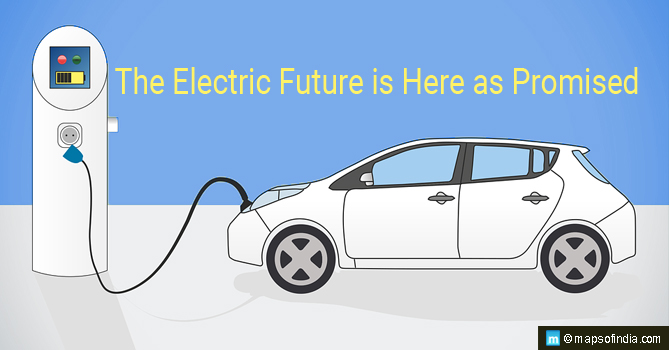
What Joaquin Phoenix says in his recent Hollywood hit makes some of us wonder if the same could be said on behalf of the Electric wave about to take over the Indian Automotive Market. When the idea of mass electrification was first floated in the market, it was ridiculed and tossed aside. What a few determined people and companies have achieved in the last decade is the only history. The modern electric car does not only challenge Internal combustion engine cars in design, performance, stability, and sustainability of power, it challenges their very existence. Way before the world runs out of fossil fuels; Electric power has started laying its roots long and deep.
Power and Performance
The very fabric of the belief – that electric power was years from challenging horsepower and the only purpose it served in the developing world was of short-range commuters – got shredded when production-spec electrics took on ten-second cars at quarter-mile races and covered more than a hundred miles on a single charge. The world now knows numerous electric supercar and superbike builders with machines that would put V8 or V10 engines – that guzzle gallons and gallons of fuel to produce all that massive power – to shame and still end up producing none of their emissions. Simply speaking for the Indian car buyers nervously fidgeting with their hands in pockets – to see the future, go test drive a Kona.
Range and Efficiency
Carmakers have struggled with range for a long time, and their hard work is reflected in the modern electric car’s range of more than four hundred kilometres on a single charge – challenging what an average internal combustion engine car does on a tank full of fuel. With range anxiety becoming a thing of the past, Indians can look forward to taking their long sought after – short weekend getaways without worrying about fuel expenses, or running out of power. Besides, automakers are working night and day to prepare the Indian Road network – urban and interstate – with the proper electric back up infrastructure like multiple charging points, mass charging outlets, and fast charging points at all dealerships.
Charging and Sustainability
The evolution of the electric car has carried with it every aspect of its function and features, including the most important – replenishment of power. The modern electric car does not compete with other nonelectric vehicles in terms of energy replenishment. It competes with our gadgets, with fast chargers juicing up car batteries up to eighty percent in just under an hour – like mobile phones, tablets, and other digital toys. Even standard chargers take not more than a few hours to charge the battery packs fully, making all that extra room in your schedule as your car can charge while you sleep. Repetitive trips to the fuel station have just been indefinitely terminated.
Recyclability and Resourcefulness
With an eco-friendly – environment driven ideology, manufacturers have spent millions on producing lithium-ion batteries that are lightweight, consume less space, and can be recycled for the most part. Making use of materials that are almost entirely bio-degradable and re-consuming used car batteries to salvage metals like nickel, cobalt etc. to be recycled and resourced for other industrial processes are only a few of the methods that manufacturers are exploring to ensure minimum wastage from the electric automotive initiative all around.
Used car battery salvage has already become a booming business in the western hemisphere since electric cars have almost completed a successful decade, and left hundreds of thousands of replaced electric car batteries waiting to be recycled.
Reduced Cost of Ownership
For those who are worried about the extra added units in their electricity bills, please make a well-calculated deduction of power consumption and include the reduction of your monthly fuel charges as well. What little extra you may be paying for a few hours of charging every week, you are saving in multiples on fuel charges by the litre. As if that isn’t enough, the cost of a litre of fuel is nearly ten times that of a single unit of electricity provided for domestic use. Add to that the fact about electric cars having less than half the moving parts in an internal combustion engine car, which makes them less susceptible to wear and tear and hence lower service and maintenance costs, give us a complete win.
With the year 2020, new world order will begin – one where automobiles and humans will together move towards a better, cleaner, and more sustainable future. Electric cars are here to stay and those who still think there’s a while before that happens, need to brush up on their awareness a little more. The shakedown began years ago, and what we are seeing is the beginning of electrification of the entire industry – one sector at a time.
Related Links:
Modi 2.0 Government’s New Scheme for E-Vehicles
Forthcoming Electric Vehicles in India





